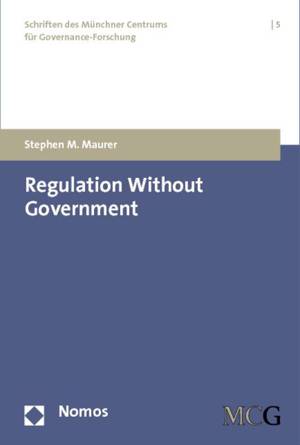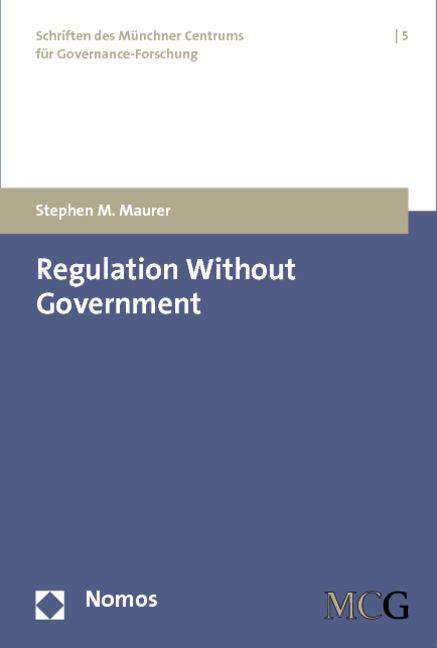
- Afhalen na 1 uur in een winkel met voorraad
- Gratis thuislevering in België vanaf € 30
- Ruim aanbod met 7 miljoen producten
- Afhalen na 1 uur in een winkel met voorraad
- Gratis thuislevering in België vanaf € 30
- Ruim aanbod met 7 miljoen producten
Zoeken
Regulation Without Government
European Biotech, Private Anti-Terrorism Standards, and the Idea of Strong Self-Governance
Stephen M. Maurer
€ 19,45
+ 38 punten
Omschrijving
Effective private sector self-regulation typically requires unanimous agreement. Historically, this has forced organizers to design weak initiatives that every industry member can agree to. Not surprisingly, these lowest common denominator standards have often been weak. Many observers take this as a sign that self-regulation is inherently ineffective. But is this true? Many New Economy industries repeatedly converge on strong and even controversial standards. Indeed, the dominance of Microsoft and other Internet giants is based on this phenomenon. In these cases, at least, standards organizers do not even try to please everyone. Instead, they focus on being the first to achieve some critical mass of supporters. Thereafter, economic forces tend to reinforce the dominant standard until even its opponents join. So far, most New Economy standards have been narrowly focused on technical specifications and economic issues. However, there is no reason why the same market forces cannot be made to serve self-governance and policy goals. This article describes a landmark experiment in which a small group of European biotech companies did just that. Despite early opposition, their voluntary system for screening customer orders against terrorist threats has now been adopted across the industry. This is true even though the new practices require much more effort than official US government guidelines. Prof. Maurer s article explores this example in detail and explains why similar strong self-governance experiments should be possible in most high tech industries. More than this, he argues that industry self-governance will usually reflect democratic values. In the process, he breathes new life into the concept of industry self-regulation. Finally, Prof. Maurer suggests concrete steps that government can take to promote future self-governance experiments by industry.
Specificaties
Betrokkenen
- Auteur(s):
- Uitgeverij:
Inhoud
- Aantal bladzijden:
- 43
- Taal:
- Engels
- Reeks:
- Reeksnummer:
- nr. 5
Eigenschappen
- Productcode (EAN):
- 9783832970932
- Uitvoering:
- Paperback
- Afmetingen:
- 153 mm x 227 mm
- Gewicht:
- 83 g

Alleen bij Standaard Boekhandel
+ 38 punten op je klantenkaart van Standaard Boekhandel
Beoordelingen
We publiceren alleen reviews die voldoen aan de voorwaarden voor reviews. Bekijk onze voorwaarden voor reviews.








